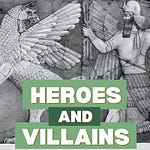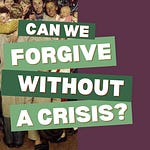I am Alexandra Hudson, author of The Soul of Civility: Timeless Principles to Heal Society and Ourselves and founder of Civic Renaissance, a movement to renew our culture through beauty, wisdom, and civility. Here, we take part in the Great Conversation. This is the ongoing exchange among seekers across time and place about what it means to live well, to belong, and to flourish together.
Civic Renaissance exists to help us recall what is most worth loving, the pursuit of beauty, goodness, and truth, and to live those realities through the daily work of restoring civility, meaning, and grace in our common life.
Our approach rests on three prongs of formation for both individuals and communities: Orthodoxy, orthopraxy, and orthopathos . Orthodoxy concerns right belief, from orthos (straight or right) and doxa (belief). Orthopraxy concerns right action, from orthos and praxis (action). Orthopathos concerns right feeling and orientation of the heart, from orthos and pathos (feeling). These shape how we think, how we live, and how we relate to one another.
Plato suggested in the Republic that the patterns shaping a person also shape a city. Paraphrasing his insight, society is the soul writ large. When individuals cultivate right belief, right action, and right feeling, those patterns scale outward and strengthen the communities they inhabit. Formation at the individual level becomes the groundwork for healthier shared life.
At Civic Renaissance you will find ideas that form us, culture that shapes us, and communities that heal us. This is a place where the life of the mind meets the work of renewal.
This post is free. If you believe in this mission, and if you want to join the Civic Renaissance Movement, consider becoming a patron or gifting a subscription.
Gracious reader,
What is the good life?
This is a question that has captivated thoughtful people across time and place.
An underappreciated reality is that a good life begins with a single good day.
The good life is comprised of many single accumulated good days.
Over the years, I’ve noticed that certain practices set me up to have a good day, and that successively they set me up for a good week, good month, and good season of life. I call these my “habits of resilaince.”
It is not an abstract sequence. It is something verified in practice. It appears in stillness at the beginning of the day, in knowledge that stretches the mind, in the steady acquisition of skills through hands-on, embodied action, and in shared creation with my children and with friends. It is a rhythm that holds contemplation and action in balance.
I recently had one of the best days of my life, and reflecting on it made this rhythm clear. The pattern began the night before when I protected my sleep and went to bed between 9 and 10pm. The next morning I woke between 5 and 6 and sat in stillness before the children rose. I journaled. I prayed. I read. That morning I spent time with Robert Greene’s work on the sublime, which widened my awareness and reminded me to look beyond urgency.
Later that day, I invited new friends to join us in learning a new skill. We mixed and poured concrete together for a small project on our property. They came without hesitation. They helped. The children helped. The task was simple, yet it created a moment of natural connection. I have learned that ordinary work often brings people together more effectively than planned activities.
Throughout the day, I received messages from Civic Renaissance ambassadors who are applying ideas from The Soul of Civility in their own towns. Their updates encouraged me because they showed that these ideas are taking root in ways I did not orchestrate. Seeing the work grow through others is one of the clearest signs that a community is forming.
Lessons learned
Embodied life, and the creative act
I am in a season of creation. I want to learn new skills, develop competence through practice, and make beauty with my own hands. I pursue this not only by writing or speaking about ideas, but by shaping the world around me through direct action. I have noticed that clarity often arrives through doing. Embodied work steadies my attention and helps me remain present to what is immediately before me.
For example, the children and I also turned to pasta making recently. It was our first time using the pasta maker to make ravioli from scratch. We made hommade ricotta from milk at a nearby farm, double zero flour in the traditional Italian style, and a touch of spirulina to give the dough a bright green color and a sparkle of festivity. We learned through trial and correction, and the process gave us that familiar sense of competence forming slowly through effort.
Morning stillness
This morning stillness also connected me to a long line of people who treated the early hours as the anchor of a reflective and ordered life.
Benjamin Franklin, in his autobiography, describes beginning each day with a guiding question. He wrote, “What good shall I do this day?” and returned to that question each evening. His practice shows how a simple prompt can orient a whole day.
Marcus Aurelius turned to morning reflection in Book Two of Meditations. He considered the challenges that awaited him and prepared himself to meet them with steadiness. In paraphrase, he suggested that clarity comes from recognizing what is within one’s control before the demands of the day arrive.
Seneca wrote in his Moral Letters that he used the morning to examine his thoughts and prepare himself for possible frustrations. In paraphrase, he taught that early preparation helps a person respond with greater calm.
Simone Weil, in her essay Reflections on the Right Use of School Studies, identifies attention as the foundation for all meaningful learning. In paraphrase, she observed that the morning offers the clearest conditions for cultivating attention.
Hannah Arendt, in The Human Condition and in interviews, describes solitude as essential for thinking. In paraphrase, she suggested that stepping away from noise in the early hours allowed her to judge more clearly.
Henry David Thoreau, in Walden, describes the morning as a time of heightened receptivity. In paraphrase, he treated the early hours as the moment when thought is freshest.
Toni Morrison explained in her interviews, including her conversation in The Paris Review, that she wrote before dawn because the early hours allowed her to meet her mind before the world intruded. In paraphrase, she saw morning quiet as essential to her work.
These examples remind me that intentional mornings have anchored the reflections and creativity of people across centuries. Stillness, attention, and early reflection are not luxuries. They are practices that support clarity and purpose.
This day captured what I understand the good life to be. It did not rely on perfection. It arose from steady habits and small acts repeated across the hours.
Stillness.
Knowledge.
Practice.
Community.
Embodied action.
Creativity.
Beauty.
Hearing from YOU, people in the Civic Renaisance community, for whom the ideas of civic renewal aren’t abstract, but lived in your life in your commmunties.
These elements formed a whole that felt coherent, grounded, and joyful.
This is my recipe.
What is yours?
Warmly,
Lexi
You are invited: What Does Santa Claus Have to Do with Social Renewal?
Many adults live inside a narrow frame of usefulness. We manage, optimize, and strive, and slowly we drift away from forms of joy that once came naturally. We’re lonely, angry, resentful and burned out.
Yet a healthy civic culture depends on citizens who have emotional space for steadiness, curiosity, and connection. Recovering non-utilitarian joy is not separate from the work of civic renewal. It is part of the foundation.
In this conversation, Alexandra will be joined by designer-storyteller Julius Johnson to explore how imagination, play, and shared stories shape our inner lives and our public lives. Together they will consider how childhood stories work in a society, why they have endured across cultures, and how they influence trust, meaning, and belonging.
Alexandra will share her own experience of discovering that Santa Claus was not real, and how that moment created a sudden awareness of disillusionment. She will also reflect on the pure delight she recently found when entering into the Easter Bunny story with her own children. This was not about literal belief. It was about creating a shared imaginative world that brought joy to everyone involved. The discussion will explore how parents can hold these stories with care, how to preserve trust while honoring the magic they invite, and what adults can learn from a child’s orientation toward the world.
We will also consider how adults can recover forms of play and presence that have been crowded out by busyness. Children approach life with curiosity and openness. Adults often develop caution and cynicism. The conversation will ask what it means to carry childlike openness into adult life without losing honesty or clarity. It will examine how these capacities shape our ability to live well together as citizens.
This event continues the Civic Renaissance commitment to renewing our shared life by tending to the interior lives of citizens. It invites participants to explore how imagination and story replenish us for the work of building communities shaped by dignity, attention, and joy.
Would You Like to Join Our Retreat Team?
The Civic Renaissance Retreat in Indianapolis, April 24–25, 2026 offers more than rest. It offers renewal of purpose. Participants will leave with a rekindled sense of hope, a clearer vision for their work, and a community of kindred spirits who remind them they are not alone in trying to heal the world. Through beauty, conversation, and shared reflection, they will recover the joy that sustains courage and rediscover the interior resources that make lasting civic leadership possible, intellectually, morally, and spiritually. I would be grateful for some of you to join our Retreat Team to help the events run smoothly, support our guests, and help us create an atmosphere worthy of reflection and inspiration. To receive more information, please email ahudsonassist@gmail.com.
In the News
Lovely coverage of the work of The Soul of Civility in Action, now spreading acrosst he nation, in Indianapolis Business Journal: “Gov. Mitch Daniels and Alexandra Hudson, author of “The Soul of Civility: Timeless Principles to Heal Society and Ourselves,” was built on a single, powerful principle….”
Year Ago on Civic Renaissance:
Thank you for being part of our Civic Renaissance community!












